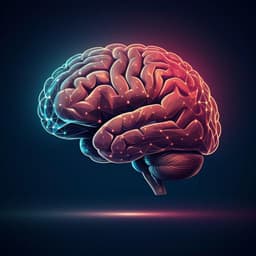
Psychology
Psilocybin therapy increases cognitive and neural flexibility in patients with major depressive disorder
M. K. Doss, M. Povážan, et al.
Explore the fascinating effects of psilocybin therapy on cognitive flexibility in patients with major depressive disorder, revealing unexpected insights about neural connections and cognitive improvements. This research was conducted by a team of experts, including Manoj K. Doss and Roland R. Griffiths.
Related Publications
Explore these studies to deepen your understanding of the subject.







